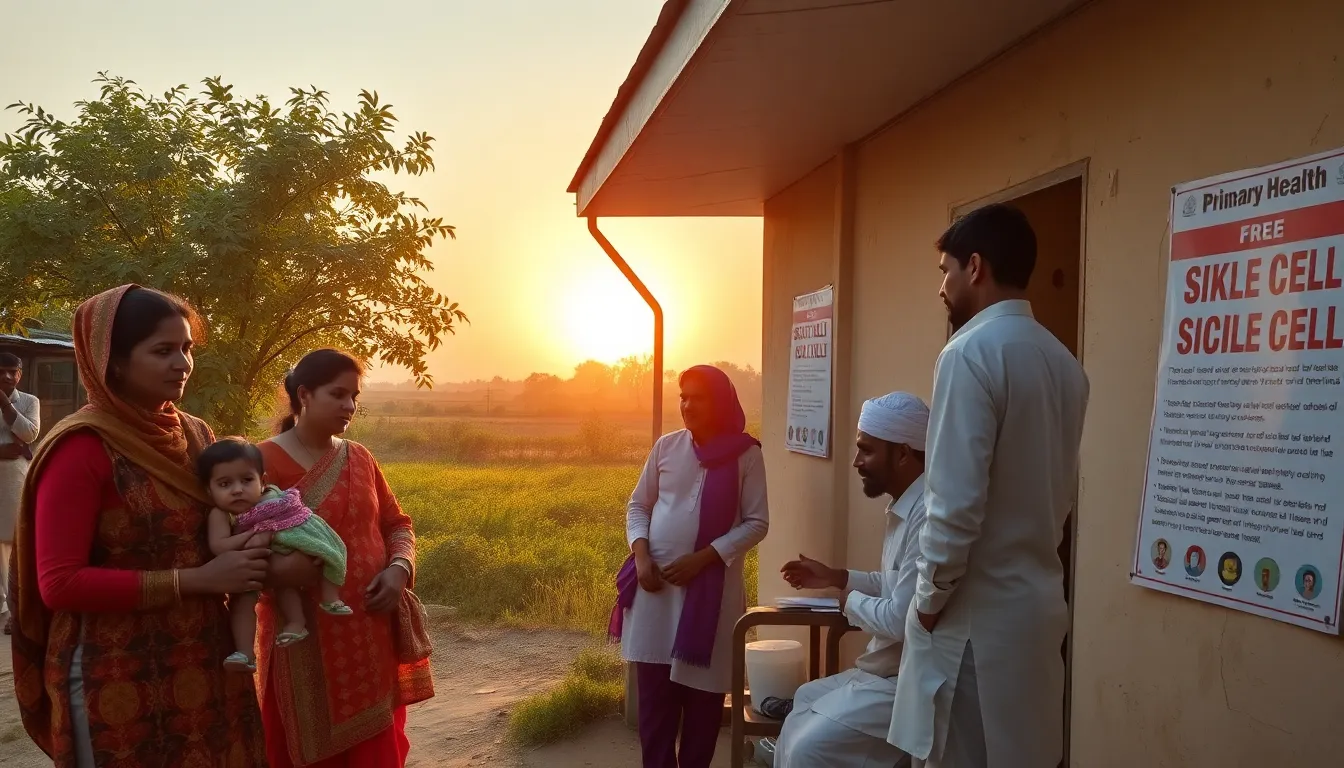In Gujarat, sickle cell disease affects a small but significant number of people. The prevalence of sickle cell disease is about 0.36%, while sickle cell carriers make up around 6.58% of the population. This genetic blood disorder impacts many, especially in tribal areas. Therefore, the government has initiated several programs to combat this health issue.
The state offers free screening for sickle cell disease at various locations, including anganwadis, schools, colleges, and primary health centers. These screenings are crucial as early detection can lead to better management and care. Special hospitals and centers are set up to provide diagnosis and treatment for those affected by sickle cell disease. A team of haematologists and specialists offers guidance and treatment to patients.
On June 19 each year, the world observes “World Sickle Cell Day” to raise awareness about this disease. The aim is to inform citizens about its diagnosis and treatment, ultimately reducing its spread in future generations. The Gujarat government is making efforts to eradicate this serious disease.
Sickle cell disease is a genetic blood disorder caused by a defect in hemoglobin. This defect can cause red blood cells to change shape, becoming sickle-like, which can block blood flow and reduce oxygen in the body. Symptoms include severe pain, anaemia, and risks during pregnancy, such as miscarriages.
Under the “National Sickle Cell Anaemia Mission-2047,” launched by Prime Minister Narendra Modi, the goal is to eliminate sickle cell disease in India by 2047. This mission covers 278 districts across 17 states, focusing on screening citizens under 40 years old.
Gujarat has been proactive in addressing sickle cell disease, especially in tribal areas where the prevalence is higher. The state started the “Sickle Cell Control Program” in 2006, focusing on screening and early diagnosis. Many areas, including Aravalli, Banaskantha, and Surendranagar, are actively participating in this initiative.
The main goal of these programs is to provide early diagnosis and maximum treatment for affected citizens. Screening is conducted through various health and wellness centers, where trained counselors and teams perform tests to identify sickle cell carriers. The testing methods include the Dithionite Tube Turbidity Test (DTT) and High-Performance Liquid Chromatography (HPLC) for confirmation.
Moreover, the government provides free medicines and medical assistance to sickle cell patients. Special centers and hospitals are operational to give treatment and follow-up care. The government is also focusing on raising awareness about sickle cell disease among pregnant women and unmarried young adults aged 10 to 25. This is crucial to prevent the spread of the disease to future generations.
In Surat, a new center has been sanctioned to provide modern and prenatal screening services for sickle cell disease. This center aims to increase awareness among the tribal population and improve health literacy. It will offer advanced diagnostic tools and treatment options, ensuring every patient is monitored and followed up appropriately.
As we observe “World Sickle Cell Day,” let us pledge to spread awareness about this disease and show empathy toward those affected. Early diagnosis and proper treatment can significantly improve the lives of sickle cell patients.
In conclusion, Gujarat’s fight against sickle cell disease is a crucial public health initiative. With the government’s strong commitment, community awareness, and screening programs, there is hope for a future free from this genetic disorder.


Leave a Reply